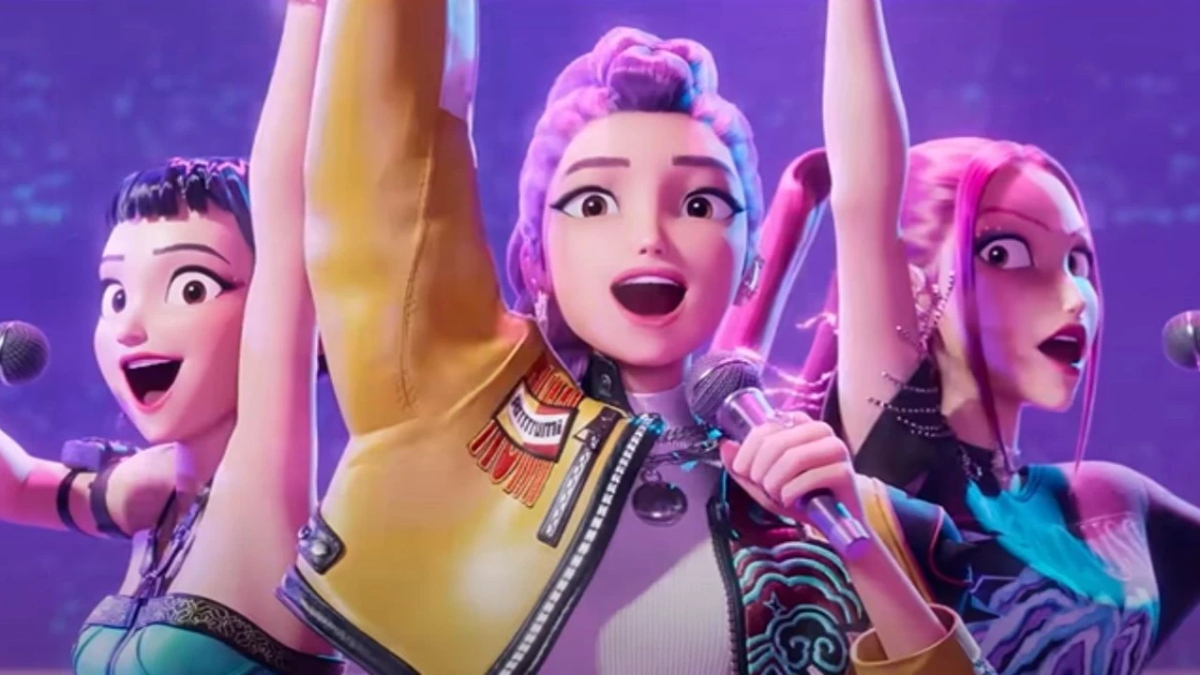The ending of KPop Demon Hunters delivers a surprising twist that completely changes how we see the main character, Rumi. It turns out she’s not just a regular demon hunter—she’s actually part demon herself. This hidden truth has been haunting her for most of the movie, and she’s been doing everything she can to hide it with help from her adoptive mother, Celine. As the story unfolds, we learn that Rumi’s real father was a demon, and her birth mother, who used to be a hunter, died when Rumi was still a baby. This secret nearly breaks her bond with her close friends and fellow Huntrix members, Mira and Zoey, who feel betrayed and confused.
But instead of falling apart, Rumi’s journey turns into one about fully accepting who she is—both the human and demon parts. That personal growth gives her more control over her powers and shows others, especially the antagonist Jinu, that she’s not defined by where she comes from. Jinu, who is also half-human and half-demon, sees a reflection of himself in Rumi. He’s been living with a lot of guilt after making a dark deal with the demon king Gwi-Ma and has wanted to erase his human side altogether. But meeting Rumi changes his heart.
In the movie’s emotional climax, Jinu makes the ultimate sacrifice. He gives up his life to save Rumi during the final fight with Gwi-Ma. His spirit stays just long enough to help her push Gwi-Ma back into the demon world and rebuild the Hanmoon—a magical barrier that keeps the human world safe from demons. But the new barrier isn’t gold like the old one—it’s blue. That color change suggests that things aren’t fully back to normal and some threats might still be out there.
The ending also leaves behind some unanswered questions that set up a possible sequel. While two of the Saja Boys, Mystery and Abs, are confirmed dead, the other two, Romance and Baby, aren’t shown dying, which means they could return later. There’s also a lot we don’t know about Rumi’s real father, who might still be alive and could play a big role if there’s another movie. Plus, we still don’t know the full story of how her parents met or what Celine really went through to raise Rumi.
Beyond the action and fantasy, the movie focuses a lot on deeper themes like identity, friendship, and self-worth. Rumi challenges Celine’s belief that being part demon makes her dangerous or wrong. Mira and Zoey also go through their own struggles, and their friendship with Rumi is pushed to its limit. But in the end, it’s their support for each other that gives them the strength to stand against darkness together. The message is clear: embracing who you are—even the parts you’re scared of—can lead to real power and connection.

